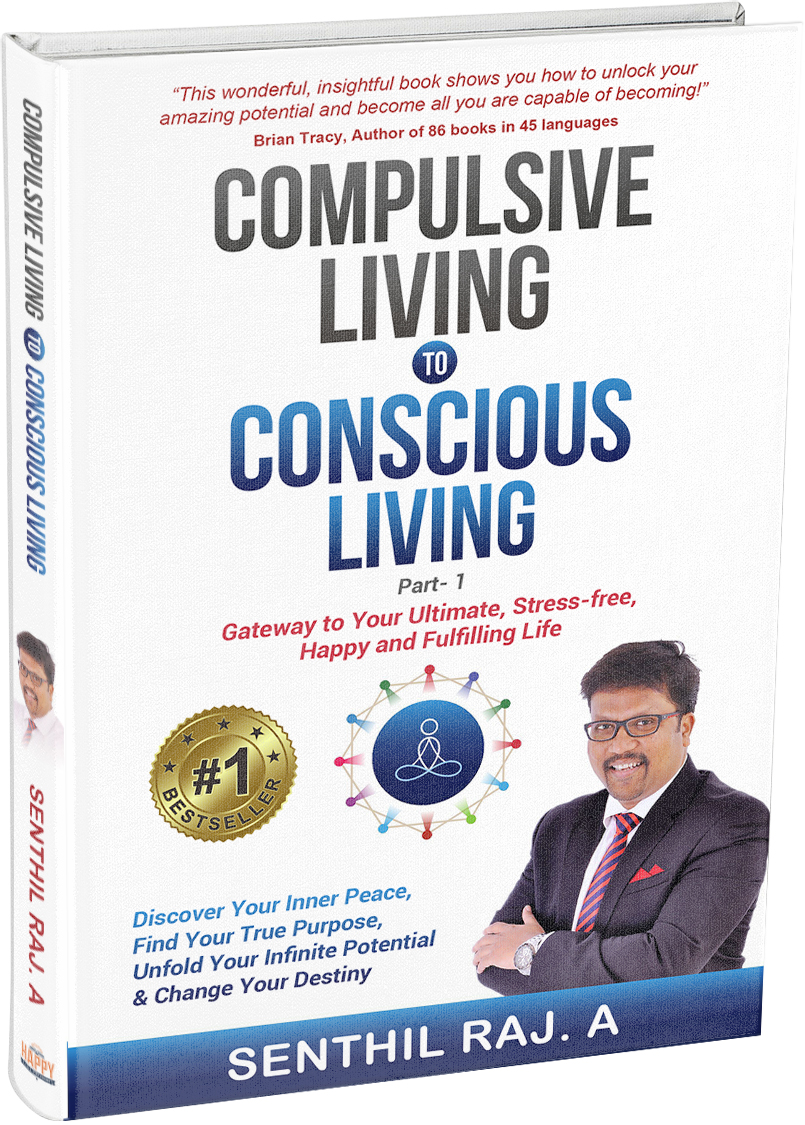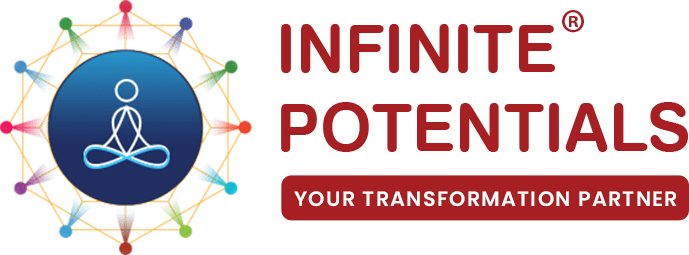Find Your Stress Level – Click here to download the Template (Life Events Scale)
Stress is the #1 Disaster of our Century
If we look back at history, the human civilisation has witnessed devastating diseases like Plague, Polio, Pneumonia and recently the Corona (Covid 19). Most of these diseases were eradicated by destroying the disease causing organisms through medication and improving the living conditions.
In this modern world there is a dangerous disease that is quite challenging to eliminate. It is a major contributor to all the disturbances in one’s physical, mental, emotional, spiritual, familial, vocational (career / business), financial and social areas of life. It disempowers us and inhibits our personal effectiveness. I am sure you would have guessed it by now. Yes, it is the one with the capital S; “Stress”.

Stress is a silent killer. It is the major disaster of our century. Stress is one thing which can kill us alive if it isn’t dealt with appropriately. It is imperative therefore to understand the factors that cause stress and the extent to which stress can have an adverse impact on our daily lives and almost ruin our life. We need to learn ways to overcome and manage stress to avoid its serious negative effects. Stress is created by the inappropriate use of our mind and our body. The symptoms of stress vary from a mild temper tantrum to as severe as a destructive heart attack. Its symptoms are many but its causes go unnoticed or unrecognised and hence often not paid enough attention to resolve it.
Ok, now let’s look at some questions to understand the presence of stress in our own lives.
- What is your current overall stress level?
- Is it at an early stage or an alarming stage?
- What are your primary stressors?
- Have they been present for a short period or have they been there chronically for a long period of time?
- Is your life at low, moderate or high risk to disease due to your current stress levels?
Find Your Stress Level using the “Life Events Scale” (in Annexure)
Now that we have familiarised ourselves with stress present in our lives, let us look at what exactly is stress, what are its different types, what is the mechanism of stress, what are the different types of stressors and finally what are its harmful effect on our mind and body. It is important to have an idea on your stress level, work on it and reduce its harmful effects.
Well, there is a way to measure your current stress level on a scale called the “Life Events Scale”, something I came across while writing my book “Compulsive Living to Conscious Living” in 2017-18. It is popularly known as “Holmes and Rahe Stress Scale”. It is a tool to have an idea on your current stress level and depending on the level to start managing it to prevent the possible downsides. I have discussed about this scale and how to measure you stress level on a list of parameters as described by the scale in the Chapter 2 of my book ‘Compulsive Living to Conscious Living’, a #1 Best Seller in three categories, i) Mind Body Soul, ii) Spiritual Growth Self-help and iii) Business Mentoring and Coaching. I have also appended the Life Events Scale as a Annexure to this blog. Please take a few minutes and measure your stress level so that you can take appropriate measures to manage and reduce the stress to prevent its downsides.
Now let us look at the mechanism of stress. How does stressful stimuli affect our body? The hormone called adrenaline secreted in the presence of a stressful stimuli persists longer than necessary and that affects our body. Adrenaline secretion slows down our digestion process, disturbs our breathing which may get uneven or rapid, intensifies our heart beat, increasing sweating, tenses muscles and thus we become temporarily strong and alert and later get very weak after the effect is over.
When do you experience stress? Stress depends on the tolerance levels to the demands posed on your inner and outer environments and your ability to tackle them. When you perceive that the challenges you encounter are greater than your abilities to solve them, you experience stress. It is an inner tension you experience due to your perceived inability to handle the situation at hand. In other words, “Stress is your inability to adapt to a changing environment.”
It can be due to an overload of work at your office / business, due to the agitations in your mind due to ‘Conflict of Values’ between your and others, due to any kind of external pressure beyond your threshold capacity to handle. It can be due to a negative emotional charge like a regret or a shame or guilt about your past, a hatred or hurt or resentment on somebody in the present and an anxiety about future, the fear of uncertainty in the future. It can also be due to built up pressure within due to ‘suppressing your feelings’ over long periods. These emotional imbalances are created when you do not live your authentic life, aligned to your highest human values / priorities, based on your internal inspiration from within (eg. What is it for you like Cricket is for Sachin Tendulkar) and instead live on injected values from others outside in the external environment like from parents, teachers, friends and relatives who want you to be something which is not what you love to be. We will discuss more about ‘Human Values’, the underlying drivers of human behaviour in the upcoming blogs.
So in a nutshell, a disconnect between your inner world and your outer reality (eg. You wanted to be a Musician but you are a Accountant) coupled with your inadequacy to resolve it thereby crossing your threshold of tolerance and falling prey for all the emotional judgements on self and others (shame and guilt / infatuations and resentments / fear and anxiety) cause the tension and stress.
Now that we have seen what is stress and what causes stress, let’s look at its different types to be aware of what is the type of stress bothering us.
- Acute Stress and Chronic Stress: Acute stress is something that hits us suddenly, e.g. A sudden termination from work. Chronic Stress is the opposite and it prolongs for longer duration, e.g., Daily work stress, family stress etc.
2. Physical Stress and Mental Stress: Physical stress is due to physical exhaustion like working for long hours. Mental stress is agitation in mind due to our inability to adapt to changing environments and challenges.
3. Positive Stress (Eustress) and Negative Stress (Distress): Positive stress or Eustress is caused by those events that we take pleasure in like falling in love, getting married, getting a promotion, going on a vacation etc. Contrary to this negative stress affects us a lot like failure in an examination, diseases, being fired at work, resentments, divorce, grief, etc.
However, immaterial of whether it is positive stress or negative stress, i.e. Eustress or Distress, the body responds in the same way. All types of stress induce the secretion of the hormone adrenaline and the body is affected if exposed for too long. A certain amount of positive stress (Eustress) may spur us to moveforward and is vital for our progress. However, negative stress called Distress can cause a multitude of health challenges if not identified on time and managed properly. Generally, we notice distress only after it happens. You might have heard people say Success and Stress go hand in hand. Here, they are probably referring to Eustress or Positive Stress, but are unaware of the two mechanisms. The recipients often mistake it for all kinds of stress and start embracing stress without knowing they have embraced Distress or Negative Stress. As a result, they get into a roller coaster ride starting from mental stress to hosting diseases in the body. It is only after it has reached the final stage of disease, we start looking back on what went wrong. It is very critical to spot it early and start managing it to avoid the ill effects of it. The aftermath not only affects your body but also slows down your growth and your ability to think with clarity. It cripples your creativity to solve the day-to-day challenges at work and at home.
A stressed mind is restless, filled with agitations and revolves around the negative side of everything as it is more polarised, subjectively biased and operates from the lower mind or Amygdala causing emotional swings, impulses to seek pleasure (prey) and instincts to avoid pain (predator), the typical animal behaviour. Please note, in the sway of emotions the intelligence (Executive Centre) does not work. The Executive Centre is shut off when the Amygdala is online and therefore, we are incapacitated to have Self Governance. Hence when we are stressed, we are often governed by others which further frustrates us.
What do we do to overcome that? We resort to instant gratifications like in metros people resort to going to a pub to unwind the agitations. Some resort to over-eating, sugary sweets and chocolates, some resort to consumerism – getting into a shopping spree, some go for smoking, etc. But none of them can solve the stress, they just give a brief relief but comes with the added side effects and stress continues to balloon up and grow more and more. So, this is certainly not the right way to handle stress.
What are the different kinds of Stressors? Well, we have discussed quite a few of them above. So here are the types of stressors: Emotional Stressors, Family Stressors, Social Stressors, Change Stressors, Chemical Stressors, Work Stressors, Decision Stressors, Commuting Stressors, Phobic Stressors, Physical Stressors, Disease Stressors, Pain Stressors and Environmental Stressors.

Now let’s look at the dangerous effects of Stress on our Body, Mind and Overall Life:
1.Psychological Level: At the psychological level, stress causes extreme irritability. Its because your mind is brimming with agitations when you are highly stressed and an emotional mind cannot think rationally, so it ends up throwing temper tantrums and gets totally disoriented creating a mess.
2. Muscular-Skeletal Level: The effects of stress in muscular-skeletal system are aches like body pain, tired muscles, general weakness, fatigue, etc.
3. Cardio-Vascular System: The effects of stress in our cardio-vascular system are increased heart rate, high blood pressure, palpitations and heart attack.
4. Respiratory System: The effects of stress in respiratory system are shortness of breath, difficulty in breathing, wheezing, asthma etc.
5. Digestive System: The effects of stress in digestive system are hyper acidity, indigestion, ulcers, diarrhoea, constipation, etc.
6. Sexual dysfunction: The sexual dysfunctions caused by stress are lack of interest in sex, premature ejaculation, impotency, etc.
7. Skin Disorders: Stress causes a lack of resistance in the body and is a source for dermatological infections and disorders.
8. Life Expectancy: Life expectancy reduces with prolonged stress. If you are continuously exposed to stress without any kind of stress management, your life expectancy can come down drastically.
9. Addictions: Stress induces addictions like sleeping tablets, smoking, excessive alcohol, anti-depressants / anxiety relaxants, and finally depression and tendency to commit suicide goes up under very high stress levels.
10. Dysfunctional Families: The temper tantrums thrown at the family members creates a chaos, disharmony, conflicts and makes family dysfunctional.
11. Work / Business Level: Inability to think with clarity and be objective leads to comparisons, judgements, subjective biases leading to poor quality work, conflicts and even termination from work.
Therefore, it is of paramount importance to understand the factors causing stress, recognize the stress level, understand its ill effects and the catastrophe it can cause when not managed. Please do not hesitate to consult a medical professional if you experience high risk of disease due to high stress and treat yourself on time.
Finally plan your stress management to reduce your stress levels and lead a balanced life aligned to your highest values / highest priorities / life purpose with inspiration, meaning, wellness and fulfilment. In my upcoming blogs I discuss in depth about how to live an authentic life aligned to your highest values which is an expression of your life purpose, how to dissolve your emotional charges, how to empower all areas of your life and other steps to manage stress and lead an inspiring life with balance, wellness and fulfilment.
“Fill your day with authentic highest priority actions that inspire you from within and it will automatically fill your day with inspiration and help overcome stress”
With Gratitude,
Senthil Raj. A
About the Author:
Senthil Raj. A, is the Author of the book “Compulsive Living to Conscious Living”, a #1 best seller in three categories, 1) Mind Body Soul, 2) Spiritual Growth Self-help and 3) Business Mentoring and Coaching. He is the first licensed Demartini Method® Facilitator and first Demartini Values® Facilitator of India.
He is a Personal Empowerment Consultant, who consults with Entrepreneurs, Professionals, Corporate Leaders, Government Officials, and Individuals and facilitates them to move from a ‘highly stressed, pressured, disempowered, imbalanced, uninspired and frustrated life’ to a ‘more balanced, inspired (self-motivated) and meaningful life with holistic wellness and fulfilment’
He does it by consulting people one-on-one:
- To find their authentic highest values (Know Thyself) which is an expression of their life purpose, align their life around it (Be Thyself).
- Dissolve their negative emotional charges using the Demartini Method® and liberate them from its heavy burden (Love Thyself).
- Empower All Areas – Spiritual, Mental, Emotional, Vocational, Financial, Familial, Social and Physical (Empower Thyself).
Check out the website https://infinitepotentials.in to know more about stress management and personal empowerment to live a balanced, inspiring, meaningful and fulfilling life with wellness.



Dr John Demartini, his Teacher & Mentor, is the World’s Leading “Human Behaviour Specialist” and founder of the Demartini Method® (aka the Quantum Collapse Process) & the Demartini Values Determination Process®.



